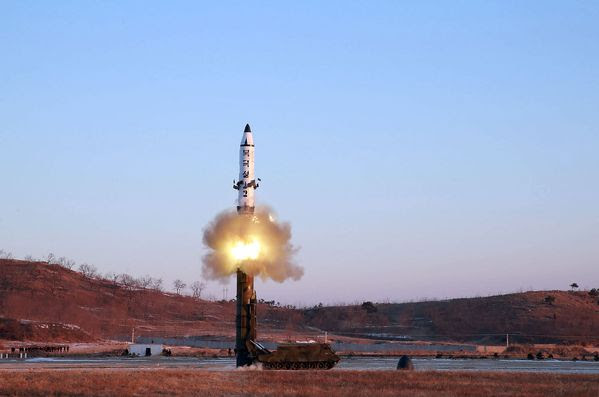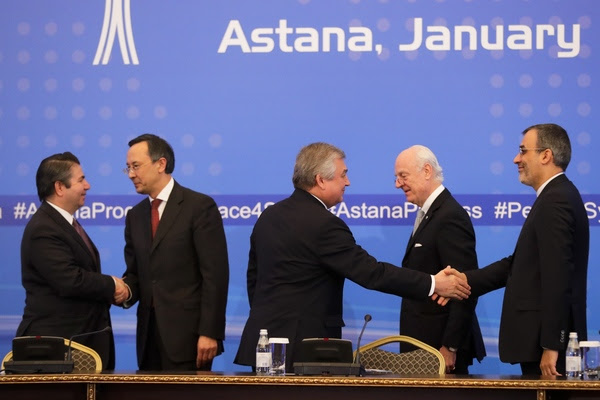LAST GENERATION NETWORK NEWS / Headline News Edition / Tuesday / AM READ.
|
• American reporters, though, weren’t particularly interested in the bonhomie. The entire news cycle on Monday was dominated by intrigue over the future of Trump’s national security adviser, Michael T. Flynn, who resigned late on Monday because of his apparent dealings with Russia. On Monday evening, my colleagues continued their stellar reporting of the Flynn story by revealing that Justice Department officials had warned the White House last month that Flynn had misled senior administration officials and could potentially be vulnerable to Russian blackmail. More below on Flynn’s uncertain future. • The U.N. Security Council condemned North Korea for its recent ballistic missile test, which diplomats deemed a “grave violation” of Pyongyang’s obligations under existing resolutions. We’ll see what further punitive measures the international community musters. As my colleague Simon Denyer reports, the launch proved awkward for China, one of North Korea’s few friends, and signs point to Beijing’s increasing annoyance with the isolated totalitarian state. The missile launch took place over the weekend while Japanese Prime Minister Shinzo Abe was dining with Trump amid the marble porticoes of the president’s Mar-a-Lago club in Florida. Accounts now made public of the moment the two leaders heard about the launch paint a surreal picture of aides turning the club’s terrace into an open-air situation room. It also raised serious questions about the manner in which Trump and his staff were dealing with classified information — particularly after an election campaign where they made political hay with Hillary Clinton’s private email servers. • In a somewhat surprise move, the White House chose to retain the Obama administration’s top advocate for gay rights at the State Department, according to Foreign Policy’s John Hudson. Randy Berry, an openly gay foreign service officer, had been appointed Special Envoy for Human Rights of LGBTI Persons in 2015, but his position was assumed to be under threat amid a Republican administration courted by right-wing evangelical Christians. "The move marks the latest surprise decision by Trump on gay rights as he juggles the agenda of his staunchly conservative cabinet and top aides, and his cosmopolitan, New York-bred daughter Ivanka and son-in-law Jared Kushner,” wrote Hudson. |

A photo released by North Korea's official news agency shows the launch of a Pukguksong-2 ballistic missile on Feb. 12. (STR/AFP/Getty Images)
Strategic silence?
On Saturday evening, as President Trump dined with Japanese Prime Minister Shinzo Abe on the terrace of his private Palm Beach club, he got word that North Korea had test-fired a ballistic missile. Much has been made of the highly public nature of Trump's post-launch deliberations and the seeming lack of security protocols that went with them.
Just as notable, however, is the unusually muted tone President Trump has taken since the incident.
At a press conference shortly after the launch on Saturday, the Trump said that the United States stood behind Japan, "its great ally, 100 percent." He touched upon the subject again at another press conference on Monday, saying "North Korea is a big, big problem and we will deal with that very strongly” — but not elaborating on what that would actually entail.Trump has repeatedly made it clear that he views North Korea as a serious threat, often speaking bombastically about the country before he entered the White House. His administration is undertaking a review of U.S. policy on North Korea, and many expect him to take a more proactive approach at odds with Obama's "strategic patience" — a position some Pyongyang-watchers may well embrace. But even now, three days after a provocative North Korean gesture, the details of Trump's policy on the peninsula remain unclear. Part of this is understandable, given staffing issues. "You don’t devise a North Korea policy sitting around a table one day in response to a [missile] test," said Jeffrey Bader, who was the top adviser on US policy in Asia to former president Barack Obama, to Public Radio International on Monday. On the plus side, Trump's slow response to North Korea may represent an opportunity. John Delury of Yonsei University argues in Foreign Affairs that it is likely Pyongyang will develop the capability to hit the continental United States with a nuclear missile within the next four years. Delury advises Trump to stay away from hawkish actions such as increased sanctions, saying instead that it is time to cautiously reach out to Kim Jong Un. "The United States needs a new strategy for dealing with Kim," Delury writes. Right now, "Trump is well placed to deliver it." — Adam Taylor |
| |||||||||||||||||||||||||||||||||||||||
President Trump has wasted no time in enacting his anti-immigration agenda since taking office. The first large-scale raids under his administration have resulted in the arrest of hundreds of immigrants, worrying advocates about the future. In Milwaukee, protesters took to the streets to denounce the raids. At the same time, a rising number of refugees who no longer feel safe in the states are risking it all to cross the northern border.
|
 "Politicians say we’ve withdrawn. But things are different in the east," says a member of Right Sector, a far-right Ukrainian militia that's fighting pro-Russian separatists in eastern Ukraine. Unlike other volunteer groups, Right Sector has refused to integrate with the Ukrainian army, and should be barred from the battlefield as a result. But the militia is still attracting recruits, including neo-Nazis from around Europe, and sending them to the front lines — all with the apparent support of the military. (Gleb Garanich/Reuters) "Politicians say we’ve withdrawn. But things are different in the east," says a member of Right Sector, a far-right Ukrainian militia that's fighting pro-Russian separatists in eastern Ukraine. Unlike other volunteer groups, Right Sector has refused to integrate with the Ukrainian army, and should be barred from the battlefield as a result. But the militia is still attracting recruits, including neo-Nazis from around Europe, and sending them to the front lines — all with the apparent support of the military. (Gleb Garanich/Reuters) |
| ||||||||||
|
|
|































Comments
Post a Comment